APEC 2025 KOREA
Navigating the Waves of Uncertainty:
A Path of Cooperation and Solidarity
PECC 2025
Ahead of the APEC Economic Leaders’ Meeting scheduled from October 31 to November 1 in Gyeongju, more than 300 experts from the Asia-Pacific region gathered in Korea. To support Korea’s return as APEC host economy after two decades, the Federation of Korean Industries (FKI) and the Korea Institute for International Economic Policy (KIEP) jointly held the 32nd General Meeting of the Pacific Economic Cooperation Council (PECC) on August 12.
Photographers Dong-yeol Kim, Gyu-cheol Shin
Trade, AI, and Demographics in a Shifting Global Landscape
August 12, 2025 | Grand Ballroom, Conference Center, FKI Tower
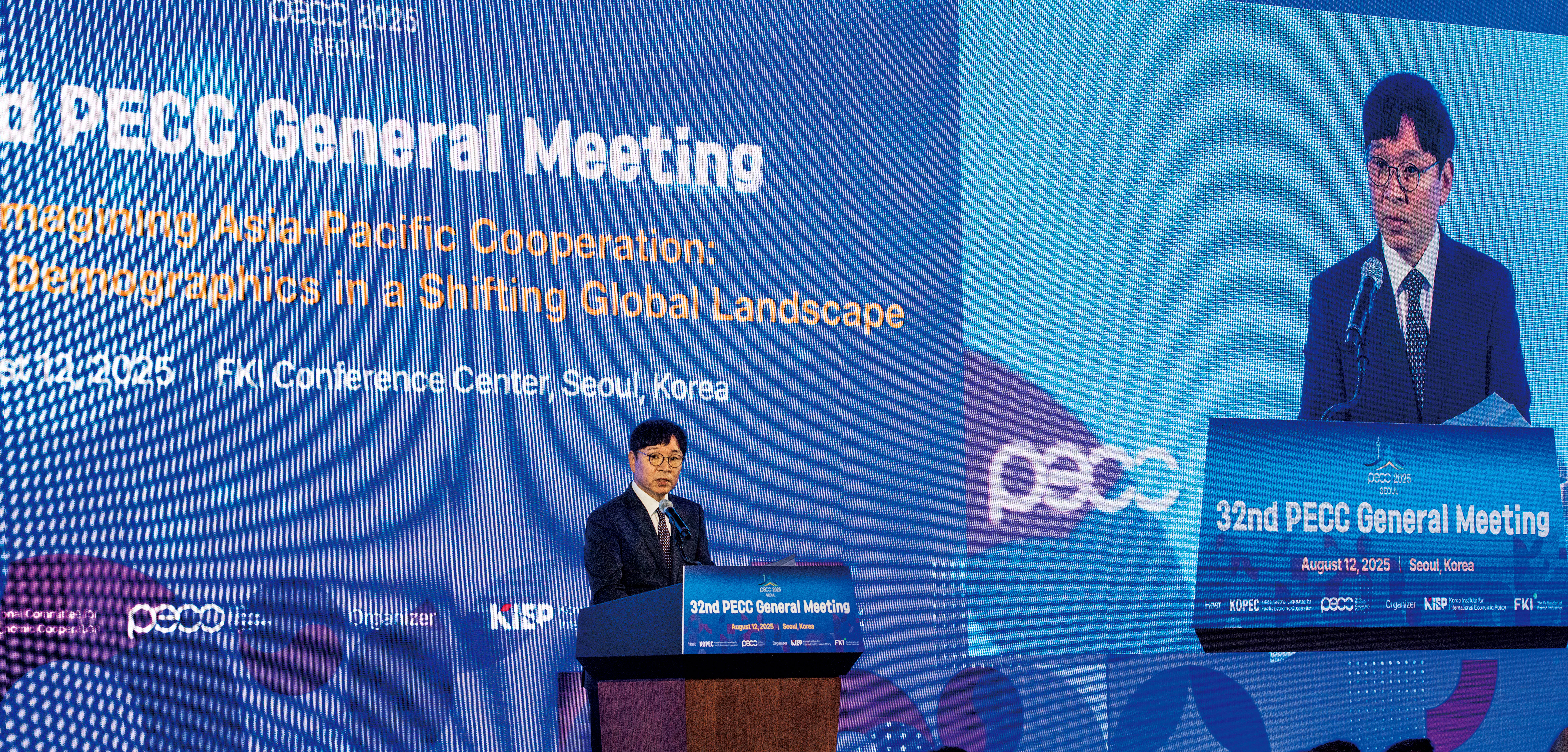
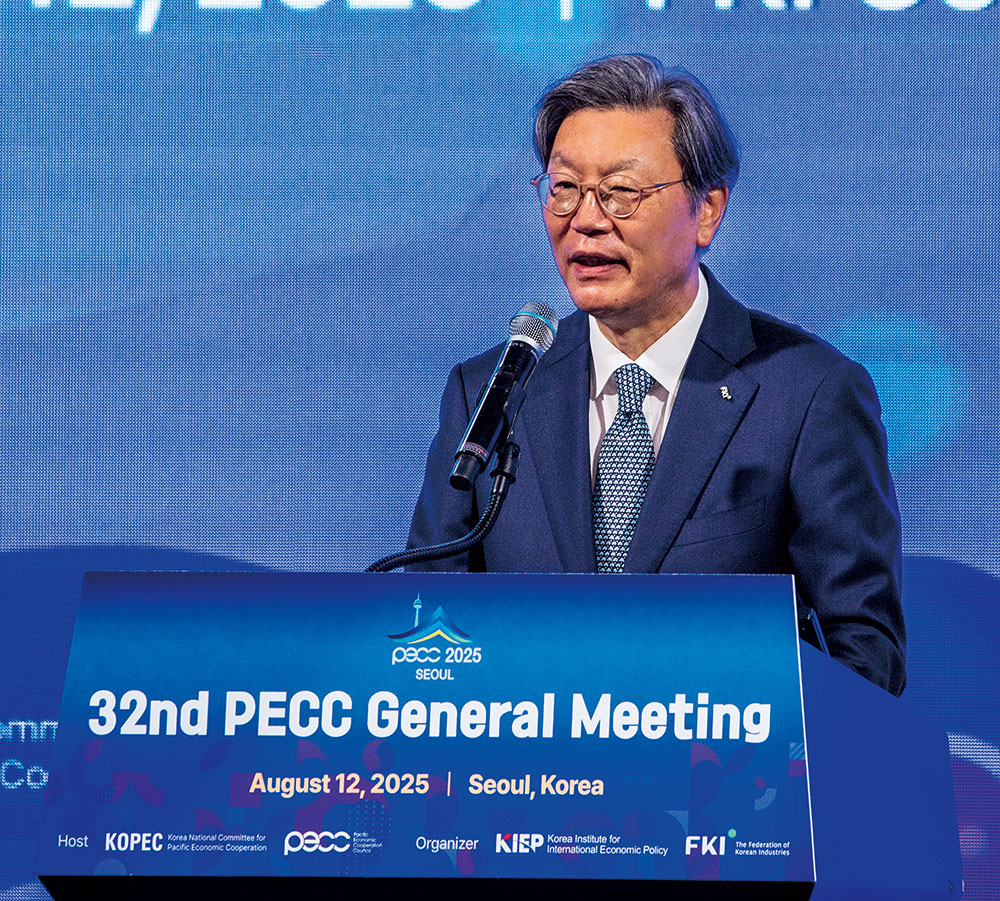
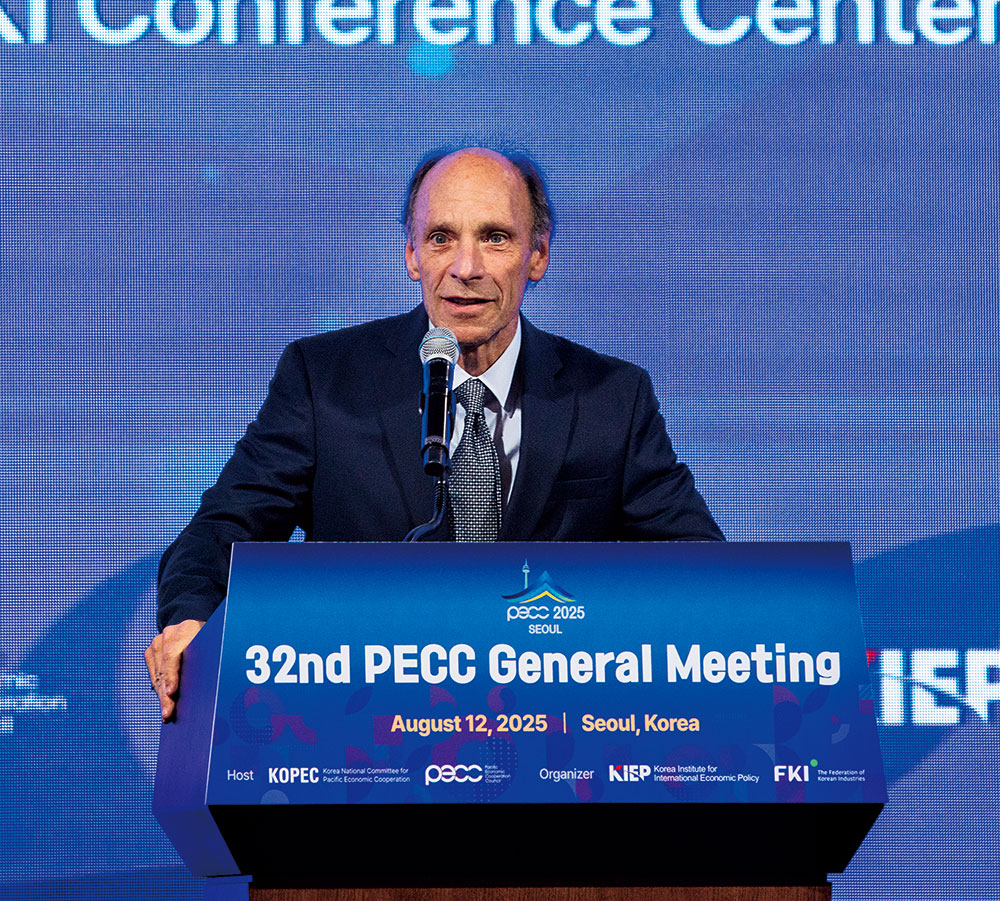
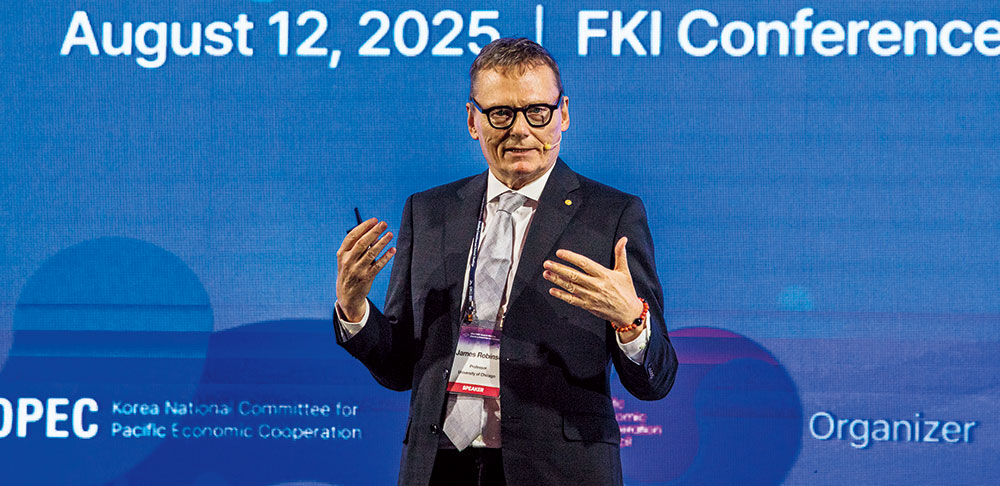
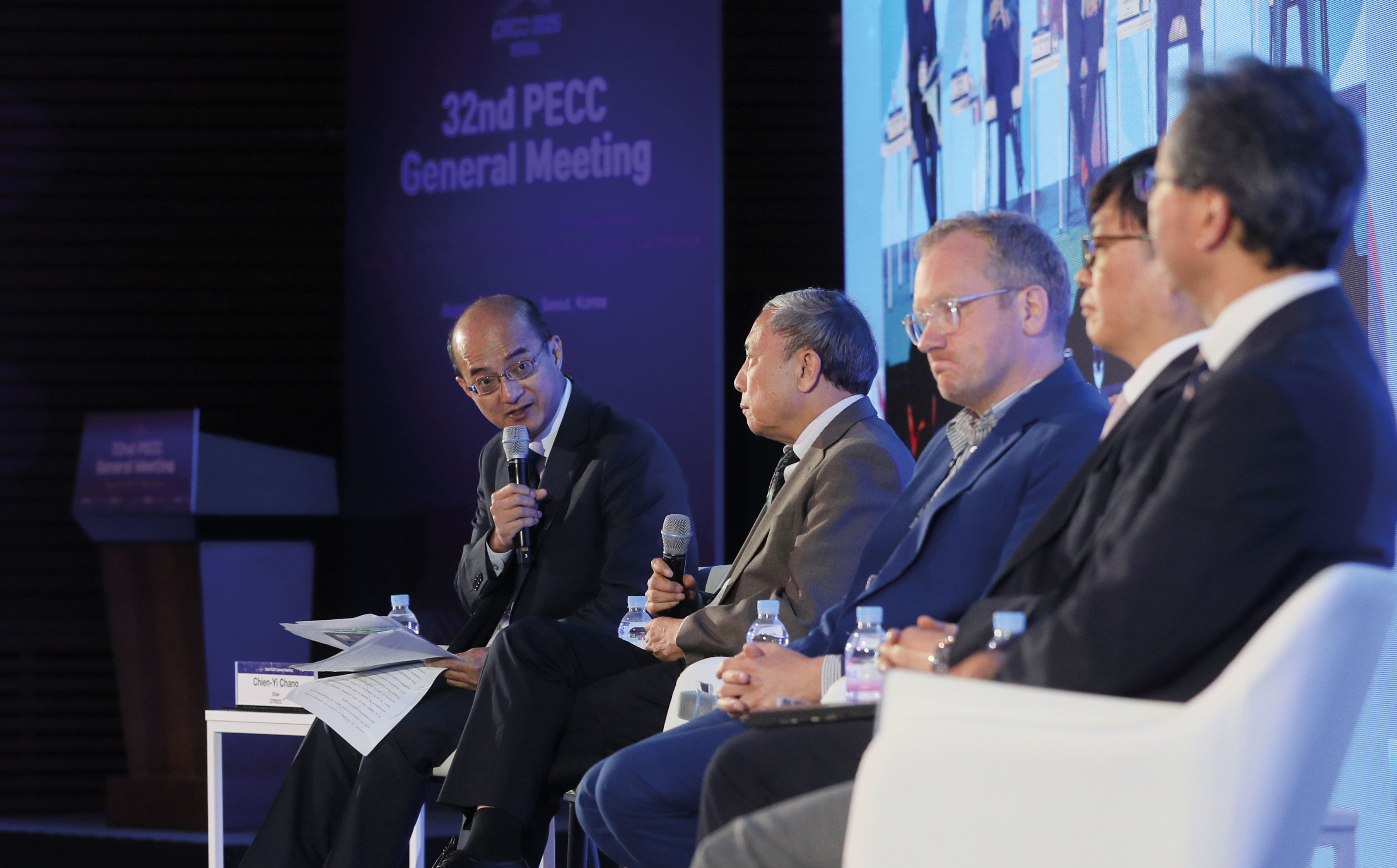
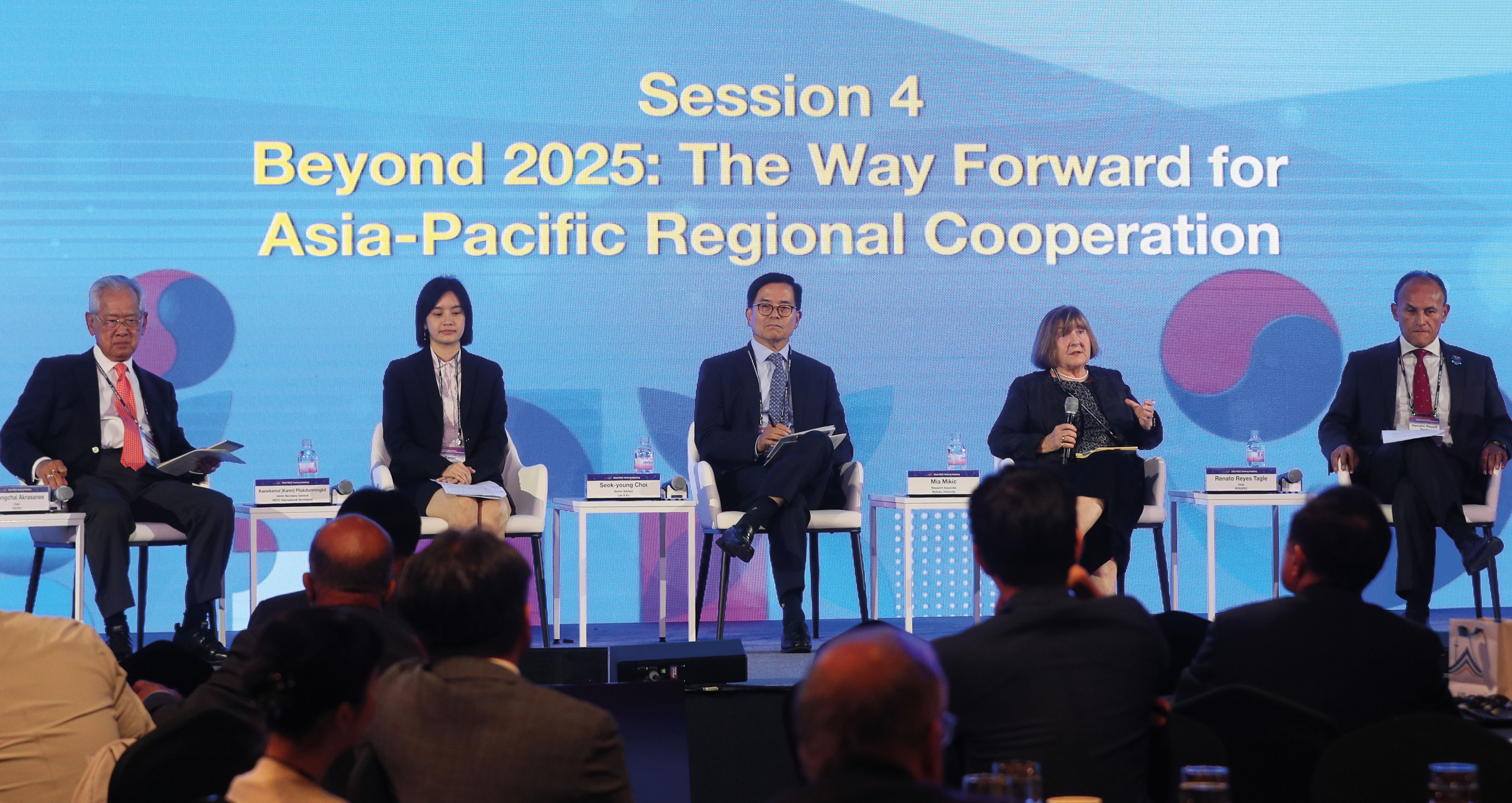
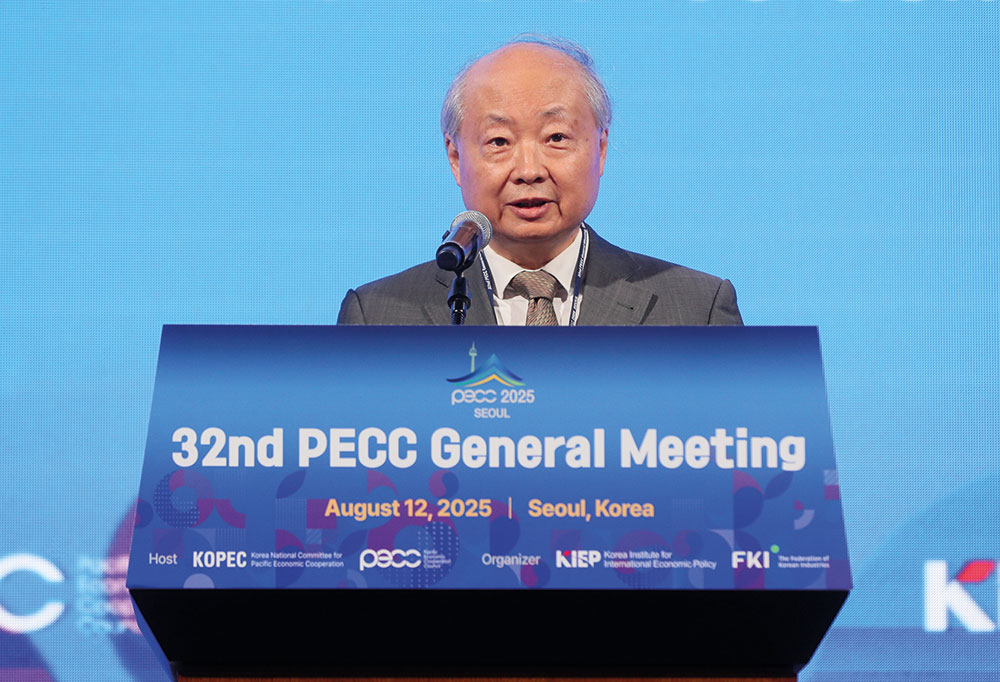

As an international economic cooperation body involving government, business, and academic experts, PECC functions as APEC’s official observer and leading think tank, offering policy-driven solutions to key regional economic issues.
Han-koo Yeo Minister for Trade, Republic of Korea
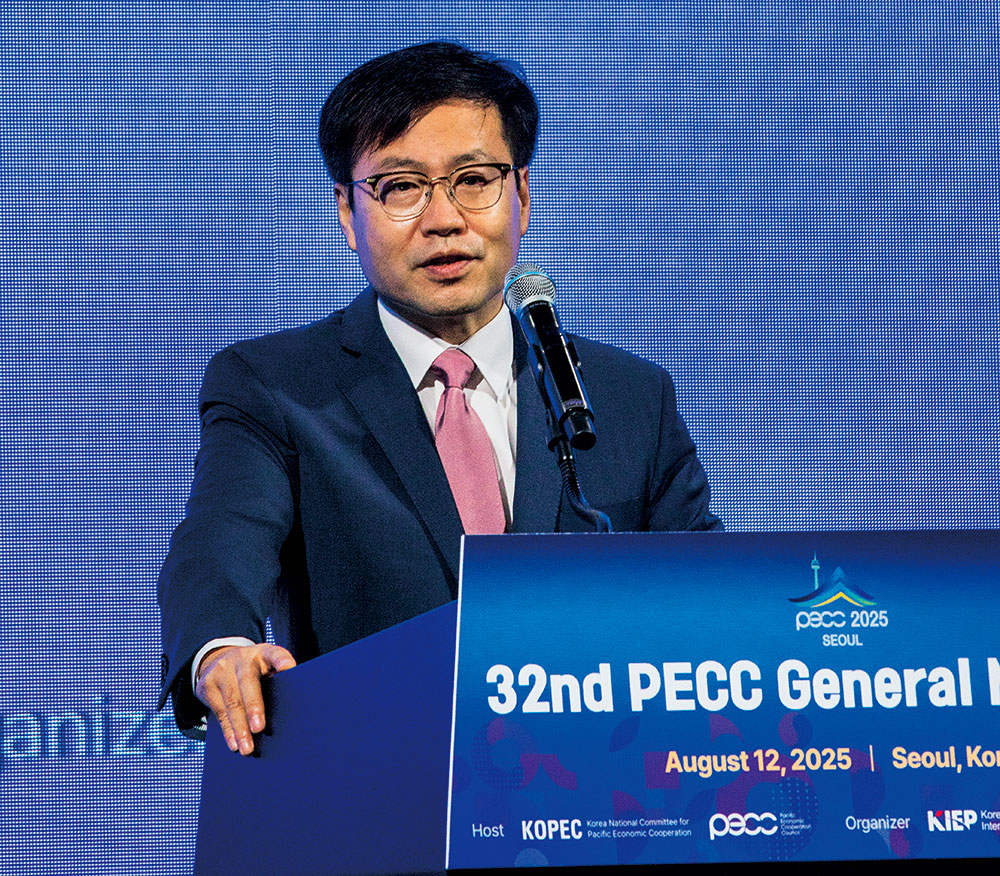
Three Forces Shaping the Global Trade Order
Three major forces are shaping today’s global trade order. First, economic issues are increasingly framed as national security concerns. Strategic assets such as semiconductors, artificial intelligence, batteries, and critical minerals are shifting from being trade commodities to tools of statecraft. Export controls, investment screenings, and supply chain restructuring are being wielded more aggressively. Second, the weaponization of interdependence is becoming more pronounced. Economic interdependence, once regarded as a stabilizing factor, is now frequently used even among allies as leverage, highlighting the importance of supply chain diversification and resilience. Third, trade is becoming rapidly digitalized. Artificial intelligence, data, algorithms, and digital standards are emerging as the new pillars of trade, accelerating the need to establish clear rules for digital commerce.
Implications of the Korea–U.S. Tariff Negotiation
Korea’s trade-to-GDP ratio exceeds 90%, with approximately 40% of exports concentrated in the United States and China. Manufacturing accounts for 27% of GDP significantly higher than the OECD average of 16%. This structural dependence has made the Korean economy vulnerable to supply chain disruptions and economic security threats. Accordingly, the Korea–U.S. tariff negotiations emerged as a top priority for the new Korean administration. Fortunately, the negotiations reached a dramatic conclusion, with reciprocal tariffs reduced from 25% to 15%, covering key export items such as automobiles. Korea secured most-favored-nation status in sectors including semiconductors and pharmaceuticals, and pledged an investment package of USD 350 billion in the United States. In addition, Korea committed to purchasing USD 100 billion worth of energy products over the next four years starting in 2025, significantly strengthening bilateral energy security cooperation. This negotiation not only laid the foundation for expanded Korea–U.S. economic cooperation but also elevated the relationship to a strategic partnership.
Korea’s Long-Term Trade Strategy
Now that the Korea–U.S. agreement is in place, the focus must shift toward long-term structural strategies. First, Korea must diversify its economic and trade partners. In light of the intensifying U.S.–China rivalry and the growing unsustainability of concentrated dependence, Korea will enhance cooperation with Global South countries through a New Southern Policy 2.0 and continue expanding its free trade agreement network. Second, it is essential to strengthen alignment between trade and industrial policies. A unified policy framework must be established around strategic industries that integrates trade negotiations, outbound investment, supply chain resilience, and technology cooperation. Third, Korea must take a proactive role in shaping new trade norms. Recognizing the limitations of the multilateral trading system centered on the World Trade Organization (WTO), Korea is actively engaging in cooperative initiatives such as the Regional Comprehensive Economic Partnership (RCEP), the Digital Economy Partnership Agreement (DEPA), and the WTO Investment Facilitation for Development Agreement (IFDA).
APEC, deeply rooted in the collaboration of governments, businesses, and academia, has long served as an incubator for new policy ideas. It will continue to lead discussions on next-generation trade norms in areas such as digital transformation and climate change. Korea is fully committed to participating in and contributing to this agenda.
Robin Harding Asia Editor, Financial Times
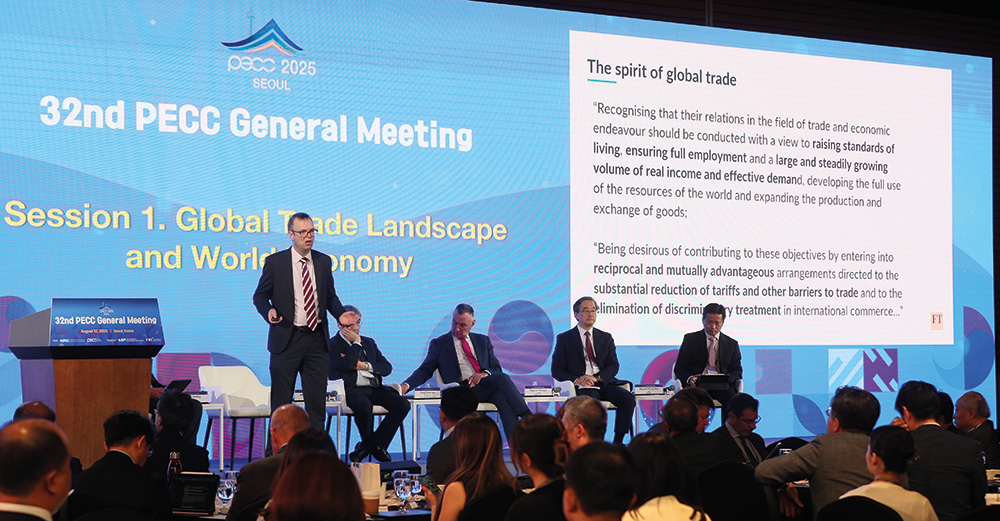
President Trump’s tariff policies fundamentally challenge the foundational values of free trade as laid out in the General Agreement on Tariffs and Trade (GATT), which has underpinned the global trading system namely, the improvement of living standards and mutually beneficial agreements. While China’s exports to the United States have plummeted, the effects of trade diversion through regional diversification and indirect exports are becoming increasingly visible. Although the overall impact on the global economy has been limited so far, this is largely because the full effect of the tariffs has yet to materialize. Once these effects become more pronounced, supply chain restructuring and a decline in productivity could emerge as structural challenges.
Given the U.S. economy’s domestic orientation, the inflationary impact may be relatively limited. However, a decline in trade volume, reduced productivity, supply chain disruptions, and persistent deficits are likely to remain unavoidable. Conversely, China remains trapped in a high-savings, low-consumption model and faces deflationary pressures. Ultimately, the imbalance between the two economic giants the United States and China will pose long-term uncertainties for the global economy.
Nonetheless, the resilience of free trade remains intact. While countries are working to build greater self-reliance in their value chains, they are also pursuing new trade agreements and institutional cooperation. Just as the global trading system was restored through international collaboration following the trade crisis of the 1930s, today’s challenges can likewise be overcome through renewed global cooperation and a shared commitment to growth.
Atoosa Kasirzadeh Professor, Carnegie Mellon University
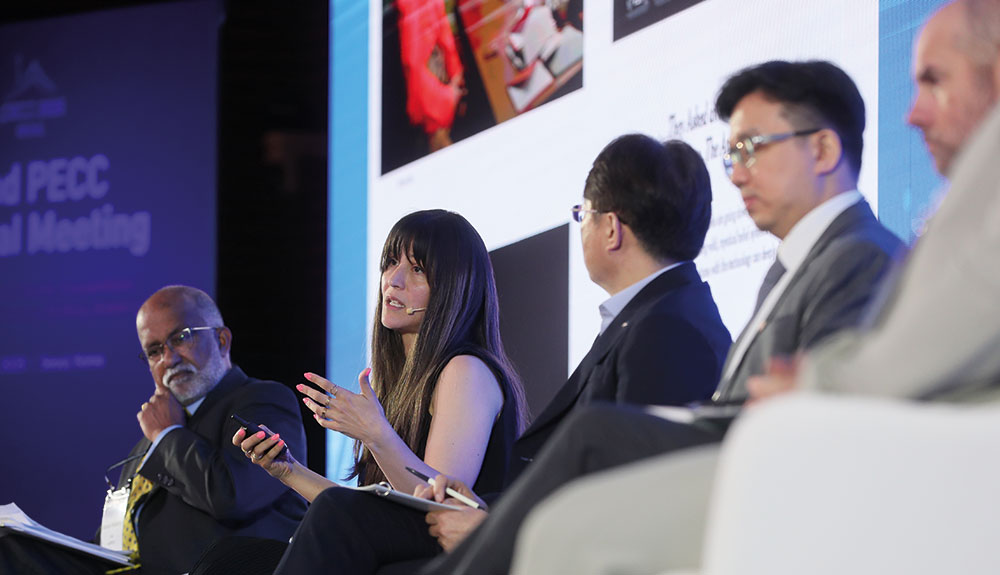
When AI research began in 1945, AI was regarded merely as a tool. More than 80 years later, AI has evolved into a core infrastructure underpinning global society. Regional cooperation is essential to ensure a safe and equitable future for AI. The key question is how we operate the infrastructure now at our disposal.
First, responsible innovation and minimization of technological risks are needed. Just as the stability of any technology must be ensured, minimizing risks is critical to AI innovation. Global stability cannot be achieved through the development of a single algorithm alone. It requires the efforts of each region to reduce AI-related harm. Second, regional resilience must be secured. This includes resilience not only in digital systems but also in cultural and social domains, to prepare for a wide range of disruptions that general-purpose technologies may cause. Third, inclusive power distribution is necessary for global stability. Preventing unequal distribution of AI benefits require cooperation in fostering diverse centers of influence.
To achieve global stability, it is essential to pursue regional cooperation based on a balanced strategy that maximizes innovation while minimizing risks.
Cai Fang Former Vice President, Chinese Academy of Social Sciences
China’s demographic transformation represents one of the most dramatic cases in the history of the global economy. During the population dividend period that lasted from the 1980s for approximately three decades, China achieved double-digit economic growth fueled by large-scale rural-to-urban migration. However, since 2010, the country’s growth rate has gradually slowed, with impacts on both the supply and demand sides of the economy.
In particular, today’s working generation in China exhibits low consumption tendencies due to the financial burdens of contributing to pension systems, supporting their parents, and saving for retirement. Furthermore, the so-called “second demographic dividend” is unlikely to materialize in China, where the challenges of population aging are already severe. In this context, China must make concentrated investments in human capital, with a particular focus on education and technological capacity.
Ultimately, economic growth and demographic dividends are not inherently beneficial or detrimental. Depending on the policy choices made, even seemingly unfavorable demographic structures can be transformed into advantageous factors that drive economic development.
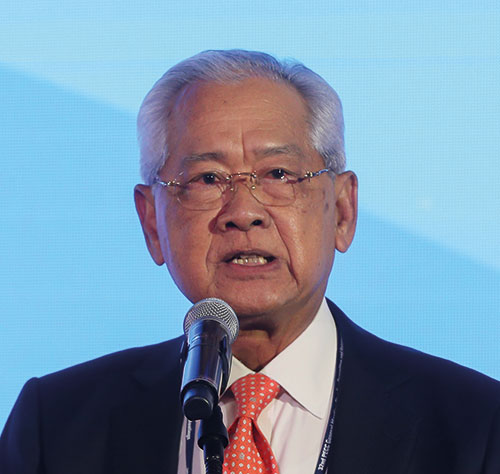
Narongchai Akrasanee Chair, PECC Thailand
In an era of “economic politics,” where economic tools are used to achieve political objectives, APEC must optimize existing FTA norms while addressing emerging challenges such as labor mobility and digital transformation.
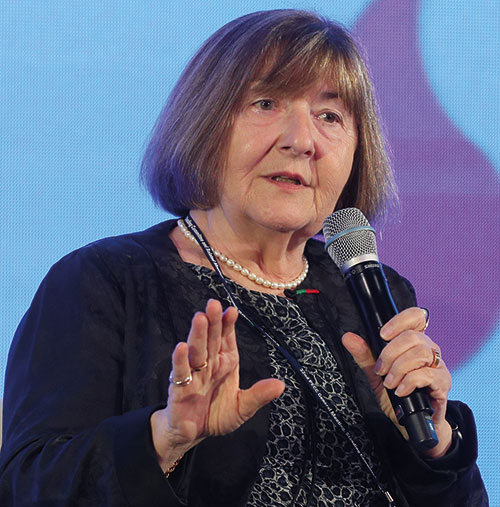
Mia Mikic Research Associate, University of Waikato, New Zealand
APEC must play a key role in strengthening core values such as openness, transparency, stability, and predictability. It should also work to build trust among economic actors, governments, and across generations.
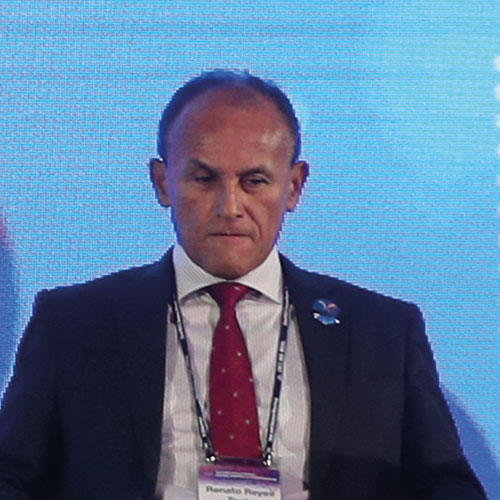
Renato Reyes Tagle Chair, PECC Peru
In times of uncertainty, face-to-face networks are more important than ever. This is one of APEC’s core strengths. APEC continues to serve as a platform for consensus-building and cooperation.
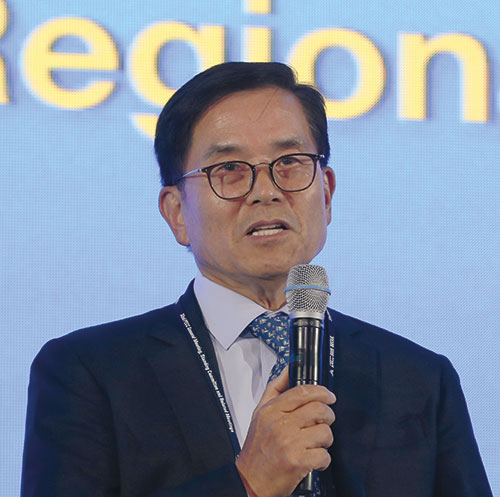
Seok-young Choi Advisor, Lee & Ko
It is time to reassess APEC’s current activities and align them with a changing environment. There must be expanded research and responses to unilateralism and economic coercion. While APEC should continue to aim for ideal multilateralism and high-quality free trade, it must also seek realistic points of compromise.
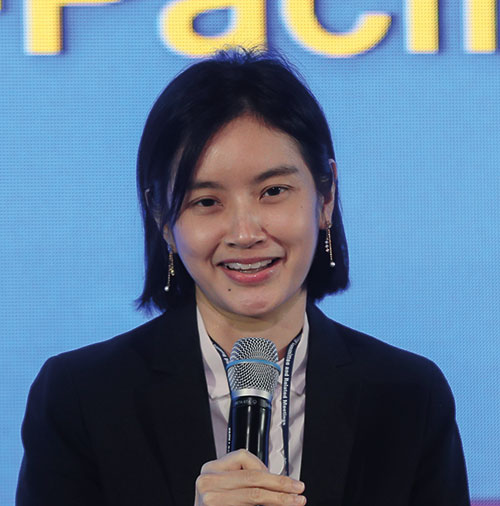
Kaewkamol Pitakdumrongkit Interim Secretary General, PECC International secretariat
PECC has consistently offered valuable ideas based on its tripartite network connecting government, business, and academia, and on its independent character. Moving forward, PECC will continue to propose actionable solutions to APEC, focusing on themes such as digital transformation, artificial intelligence, climate change, and resilience.